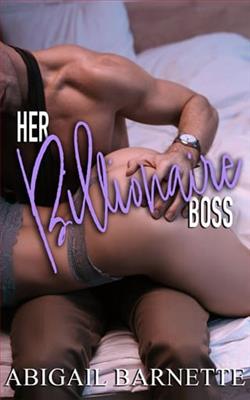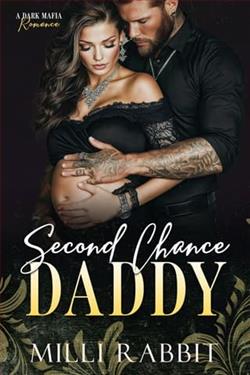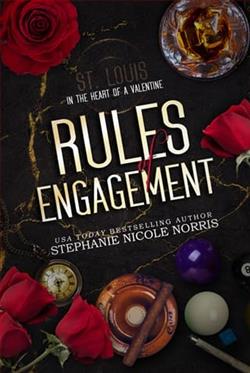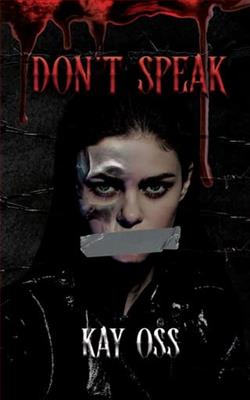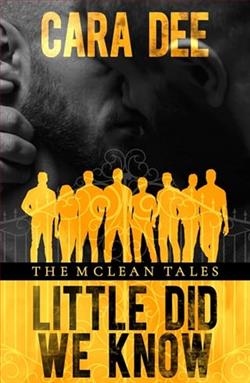Page 11 of Broken Roads
"What's that supposed to mean?"
Sawyer moves up beside me, his shoulder brushing mine as he helps with the gate. "It means I've got eyes, Bradley. I see how you work sixteen-hour days and still can't sleep at night. Isee how you check and recheck the books like you're looking for money that isn't there."
The gate swings open with a metallic groan. I unclip Max's lead rope and give him a gentle slap on the rump, sending him trotting into the pasture toward the other horses. He immediately drops his head to graze, content in the simple pleasure of grass and sunshine.
I wish it were that easy for the rest of us.
"You don't know what you're talking about," I mutter, but the words lack conviction even to my own ears.
"Don't I?" Sawyer leans against the fence rail, his eyes following Max's progress across the field. "When's the last time you took a day off? A real day off, not just switching from ranch work to paperwork."
I can't remember. The realization sits heavy in my chest.
"When's the last time you went into town for something other than supplies? Had a beer at the Spur? Hell, when's the last time you talked to a woman who wasn't Ruthie?"
"That's none of your damn business."
"Maybe not. But it's sad as hell to watch." He turns to face me fully, and there's something in his expression I don't like—pity, maybe, or concern that cuts too close to the bone. "You're thirty-five years old, Bradley. You're not supposed to be married to a piece of land."
"This land is all I have left." The admission slips out before I can stop it, raw and honest in a way that makes me want to take it back immediately.
Sawyer's expression softens. "No, it's not. You've got family. Friends. You've got a life beyond these fences, if you'd let yourself live it."
I turn away from him, from the understanding in his voice that makes my throat tight. "I don't want to talk about this anymore."
"Fine. But answer me this; what happens if she's right? What happens if there really are problems you can't see, solutions you haven't thought of?" He pauses, letting the question hang in the air between us. "What happens if letting her help is the difference between saving this place and losing it?"
The possibility I've been trying not to think about crashes over me like cold water. Losing the ranch. Losing everything my parents built, everything they trusted me to protect. The weight of that potential failure presses down on my shoulders until I can barely breathe.
"She won't be right," I say, but even I can hear the uncertainty creeping into my voice.
Sawyer pushes off from the fence, his boots crunching on the dry grass. "For your sake—for all our sakes—I hope you're right about that." He starts walking back toward the stable, then pauses, looking back over his shoulder. "But if you're wrong, your pride won't keep the lights on."
He disappears around the corner of the barn, leaving me alone with the horses and the weight of words I don't want to consider. In the distance, a meadowlark calls from the fence line, its song clear and sweet in the evening air. The sound should be comforting—it's been the soundtrack of my entire life—but today it feels like a goodbye.
I close my eyes and try to imagine this place without me. Without any of us. Try to picture strangers walking through these fields, sleeping in the house where my brother and I have been born and raised. Where my mother died. The image makes my stomach turn.
Maybe Sawyer's right. Maybe I am scared.
But being scared doesn't make me wrong.
Chapter 5
Hailey
The GPS directs me to turn right, and I follow mechanically, my knuckles white against the steering wheel. Six months of meetings just like this one, but somehow, doing it in a new place makes me feel like I'm starting over. Like I'm back at day one, shaking and desperate with the taste of vodka still burning the back of my throat.
I shake the anxiety as the community center appears ahead. Small, unassuming, with a gravel parking lot half-filled with cars that have seen better days. Parking near the back under the shadow of a pine tree, I cut the engine, listening to it tick as it cools. My hand slides into my pocket, fingers closing around the familiar weight of my chip and I rub my thumb over its surface—a ritual that's become as necessary as breathing.
"Just go inside," I whisper to myself, but my legs don't move. Through the windshield, I watch people filter into the building. Some walk with purpose, shoulders squared, while others shuffle, eyes down, like they're trying to make themselves invisible. I recognize that walk. I've perfected it.
My gaze flicks to the dashboard clock. Five minutes until the meeting starts. My mouth goes dry, and I swallow hard against the wave of anxiety threatening to drown me. I could drive away. Find a bar instead. No one here knows me. No one would know if I—
I slam that thought down hard, throw open the car door, and force myself out before it can take root. The evening air hits my face, cool and clean in a way Chicago air never was. I breathe it in, trying to clear my head as I walk toward the building.
Room 103 is halfway down on the left. The door stands ajar, voices spilling out—soft murmurs, occasional laughter, the scrape of metal chairs against linoleum. I hover just outside, watching. Inside, about fifteen people arrange chairs in a loose circle. A folding table in the corner holds a coffee pot, stack of Styrofoam cups, and a plate of cookies that no one seems interested in.
They look... normal. Middle-aged men in flannel and jeans. A gray-haired woman arranging pamphlets. Two younger women chatting quietly in the corner, one with vibrant blonde curls spilling over her shoulders. They could be anywhere—a church group, a book club, or a community meeting about road repairs. But we're not. We're here because something in us broke, or was always broken, and alcohol was the medicine that became the poison.








